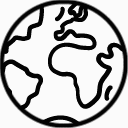

Renewable energy (RE), such as solar and wind, has a vital role to play in decarbonizing energy systems. In 2021, WWF and H&M Group set up a partnership project with the aim to increase renewable energy use in the H&M Group’s supply chain in Asia.
In the project, WWF and H&M Group will work on strategy, capacity-building and technical support for solar PV and wind power projects in H&M Group’s supplier network. The partnership will also support joint policy advocacy for government interventions in Myanmar and Cambodia.
“As around two thirds of H&M Group’s emissions are in their supply chain, the focus needs to be on rapidly scaling renewables in the factories. Achieving this will require favourable government policies and incentives. For H&M Group to reach its climate targets, most supplier electricity will need to be powered by renewable energy in the mid to long term”, says Milan Kooijman, climate expert at WWF.
Solar and wind – preferred options for renewable energy
A lot of suppliers are dependent on coal or on unsustainable and / or illegal wood for heat production in boilers. Also, diesel generators are often used as a permanent power supply. All create significant climate impacts. One aim of the partnership is to find alternative solutions in terms of fuel and technologies to address these impacts.
“Solar and wind are the preferred renewable options as the risks of negative consequences utilizing these types of energy sources are lowest. However, solar and wind cannot provide 100% of the solution for these factories, at least not in the short-term. Sustainable biomass is considered as well, although this does have to be done well to avoid other negative environmental impacts”, says Milan Kooijman.
Supporting suppliers in switching to renewable energy will reduce their emissions and most likely also costs of these businesses. This will, in turn, lead to reductions of H&M Group’s scope 3 emissions which is needed to reach the company’s 2030 and 2040 targets.
Policy work in Cambodia and Myanmar
Main challenges in Cambodia and Myanmar are a carbon-intensive power sector and unsustainable use of hydropower and biomass, leading to broader environmental impacts. To address these issues, the programme will, in parallel to efforts in the supply chain, also focus on policy work in these regions.
Main focus for the project in Cambodia
- Publication and dissemination of a report on the true costs of power generation options
- Policy recommendations from WWF to advocate for enabling policies and regulations to accelerate non-hydro RE deployment (i.e. FIT, RE auctioning, rooftop solar, DPPA/VPPA, DRE rules, EE standards)
- Creation of a Sustainable Energy Alliance with like-minded organizations, such as think tanks, CSOs, development organizations and renewable energy developers.
Main focus for the project in Myanmar
- Publication and dissemination of a Renewable Energy Vision report on 100% RE in the country and the true costs of power generation options for Myanmar.
- A communication package to advocate for enabling policies and regulations for accelerated non-hydro RE development (i.e. DPPA/VPPA, net-metering, rooftop solar regulations, EE standards).
- Development of the Climate Justice Working Group
